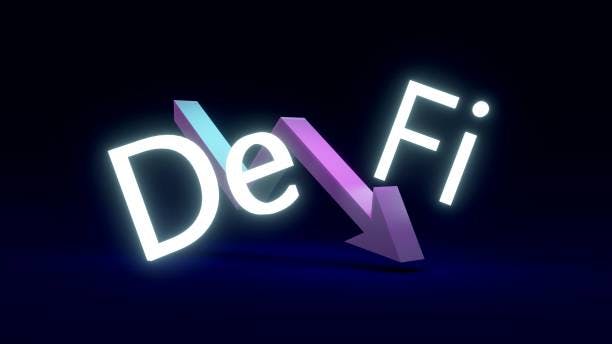Introduction
Funds management is crucial to both investors and management companies as the aim is to achieve financial investment goals. Decentralized finance was built to revolutionize traditional financial services by scrapping the need for third parties.
With DeFi, users do not need to rely on centralized entities to function appropriately. For example, the traditional financial system requires users to have an account with them in order to use their services, whereas decentralized finance eliminates all barriers, allowing anyone to pledge their digital assets as security for loans.
In a few minutes, you will understand what fund management in the decentralized system is, how to implement it, as well as how the creative DeFi teams have built a system that can help users manage their funds without necessarily hiring an investment manager. Additionally, this article will cover possible ways to secure funds to avoid loss. We will also cover how users with large DeFi assets could secure their funds by insurance purchase and the suitable platform they could invest in.
What Is Funds Management?
Fund management refers to the way you manage and supervise your assets in cash flow to generate more of what you have invested. The idea of not losing out on what you have invested in the decentralized system is what brought about the innovative idea crafted by the decentralized finance team. With the use of algorithms, you could keep a check on your assets, as opposed to the traditional way of managing funds, which costs you the stress of hiring a fund manager to generate funds for you.
Benefits of Decentralized finance over the traditional finance system

Traditional fund management is the process of increasing wealth over time by trading investments with the potential to increase in value, such as equity shares and real estate, with the expectation of high dividends. Unfortunately, we cannot live in the past because this archaic system cannot compete with decentralized finance due to frictions, inaccessibility, and uncertainties. However, decentralised finance (DeFi) is aimed at bridging the gap by making finance accessible and available to everyone without any restrictions. To better understand how fund management works, I will introduce you to some helpful platforms like TokenSet, IndexSet, and Yieldfarming Set (some of the smartest platform) that help you manage your cryptocurrency assets.
TokenSets

TokenSet allows cryptocurrency users to buy strategy-enabled tokens abbreviated as "SET." TokenSets uses an automated asset management master plan that allows users to conveniently manage their cryptocurrency portfolio manually without having to monitor the trading themselves. This platform has conceptually reduced the emotional risk involved in trading.
How it works.
Every SET consists of ERC20 tokens of cryptocurrency trading strategies that are valued in the form of tokens. Sets are structured algorithmically with ERC-20 tokens that represent a basket of underlying assets based on a criteria range. These sets are of two kinds.
Index sets: index sets expose users to different assets and reduce gas fees when single tokens are purchased. One of the most popular sub index sets is the DeFiPulse index set. A few examples of the types of DeFi assets in existence under the DeFiPulse index:
-Aave (AAVE) -Uniswap (UNI) -Maker (MKR) -Compound (COMP) -Harvest Finance (FARM) -Sushiswap (SUSHI) -Meta (MTA) -Balance (BAL) -Kyber Network (KNC) -Looping (LRC) -REN (REN) -Yearn Finance (YFI)
Yield Farming Sets
The Yield Farming Set allows users to save gas without enabling them to conduct or engage in multiple smart contract transactions recurrently to get more farming yield sets. The yield farming set strategy is poised to allow users to gain more liquidity provider rewards by periodically helping stake those assets and restaking them to generate more liquidity provider rewards.
What benefits do these sets offer?
Tokensets are used in managing automated assets in cryptocurrency. Token sets allow you to try out selected trading strategies, for example, purchasing a basket of assets. One good advantage of the IndexSet is that it follows the market capitalization weighting strategy, thereby bringing the assets back to shape based on the present market capitalization policy of the underlying assets.
Insurance policy and loss control.
 To engage in decentralized finance, or "DeFi," in the decentralized world, you must lock your token in multiple smart contracts, which are vulnerable to fraud due to the enormous possible payoff. Not all businesses have their codebases audited. Due to this reason there is a possibility of transactions being hacked which will results to associated potential losses, it may be difficult to determine which smart contract is actually authentic. This is why you need to buy insurance from a decentralized insurance provider to prevent these losses (such as Nexus Mutuals or Nsure Network).
To engage in decentralized finance, or "DeFi," in the decentralized world, you must lock your token in multiple smart contracts, which are vulnerable to fraud due to the enormous possible payoff. Not all businesses have their codebases audited. Due to this reason there is a possibility of transactions being hacked which will results to associated potential losses, it may be difficult to determine which smart contract is actually authentic. This is why you need to buy insurance from a decentralized insurance provider to prevent these losses (such as Nexus Mutuals or Nsure Network).
Nexus Mutual
As a decentralized insurance protocol, Nexus Mutual provides custody insurance for centralized exchanges like Coinbase, Binance, Celsius, and Blockfi, as well as coverage for smart contracts created on the Ethereum blockchain.
Events covered by Nexus Mutual
 A smart contract cover, like the Nexus Mutual, provides cover for coverage against smart contract failure, which implies that they ensure cover for smart contract vulnerabilities across various decentralized platforms.
"Nexus mutual protects the product from "unintended uses" of smart contracts; it also provides security for events caused by negligence; however, it shields users who invest in organizations that hold user assets."
A smart contract cover, like the Nexus Mutual, provides cover for coverage against smart contract failure, which implies that they ensure cover for smart contract vulnerabilities across various decentralized platforms.
"Nexus mutual protects the product from "unintended uses" of smart contracts; it also provides security for events caused by negligence; however, it shields users who invest in organizations that hold user assets."
Why is Nexus Mutual Cover a necessity??
The duty of the Nexus Mutual cover is to assist users in the following circumstances:
First, users will be protected if the custodian has a hack and loses more than 10% of their cash; second, users will be protected if the custodian suspends withdrawals for more than 90 days. Also mentioned will be Nexus Mutual Work Dependent on Users. On the basis of the user's financial investment performance, they employ a continuous token model (NXM).
Nsure Network
The Nsure network is a decentralized insurance project that trades insurance risk. In the Nsure Network, the prices for premium trade are determined by a dynamic pricing model. The dynamic pricing model is where capital supply and demand are generally determined by the premium. The Nsure Network is backed by policy purchases; they are accustomed to holding a share of the general network, so the assets of users are in safe hands.
Benefits of trading in the Decentralized system

- Transparency : transactions performed in the DeFi are made on the Ethereum Blockchain. Every verified user can monitor the transactions on the network to ensure the security of the network activity.
- Security: with the use of Blockchain architecture, DeFi information or data is well secured and unaccessible to hackers.
- Every user in this system can be a custodian of their own assets. This is made possible if users make use of smart contract escrow. Smart contracts are programmed to automatically execute based on an indefinite number of variables.
Conclusion
In conclusion, the decentralized system services are designed to provide an accessible financial landscape thanks to the development of blockchain technology. Payments, trades, loans, investments, insurance, and asset management are among the available services.
I hope you now know how to keep financial balance without employing a fund manager after learning how to manage your finances, the numerous platforms you could invest in, and how the aforementioned sets could be useful.
